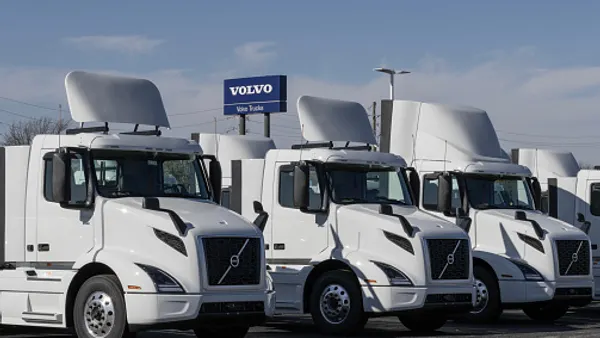Dive Brief:
- Amazon's top U.K. boss, Doug Gurr, warned Brexit Secretary Dominic Raab leaving the European Union without a deal could cause "civil unrest" within two weeks, according to The Times.
- The statement reportedly shocked other members at a meeting with representatives of the U.K.'s biggest businesses. Gurr said it was the "worst-case outcome" the business had come up with in its contingency planning. An Amazon spokesman told the Times they consider all scenarios "even if those scenarios are very unlikely."
- Business Insider reports a "no deal Brexit" is looking increasingly likely. The scenario would cause the U.K. to revert to World Trade Organization terms for commerce, would "create chaos" for food and medicine supplies and damage Amazon via a downturn in economic spending.
Dive Insight:
Amazon’s study of Brexit is a perfect example of identifying and mitigating supply chain risk. They are looking at geopolitical ramifications on their business, including impacts on their revenue, their supply chain, governmental relationships and any other bearing on their business. They look at their business holistically, with the supply chain an essential part of their business.
While I am sure that Amazon’s supply chain experts take part in the analysis, it is not left totally up to them. Risk in the supply chain becomes part of their overall business modeling, and that is an important distinction. It also provides a lesson that proper due diligence works. Amazon doesn’t build a 1,000,000-square-foot facility based on the advice of the real estate agent selling the land. They do their homework.
Supply chain managers need to do theirs as well. Few of us work for companies as large and influential as Amazon, or with their resources. But that doesn’t mean that supply chain managers can’t strategize at a higher level.
Sure, the fire on your desk today might have to take a back seat to an analysis of steel tariffs on your downstream supply chain, but those kinds of long term impacts on your business are critical to your financial, operational and marketing strategies. You’ll have to address them at some time. Even now, those price increases you are seeing have "potential trade war" baked in. Your suppliers are doing their homework.
I’ll acknowledge that it is impossible to keep up with everything going on in the 24/7 news cycle. Far too many have decided to shut out the news these days, preferring the head in the sand approach. While it may be more personally peaceful, it is not doing your business any favors.
Start your own gap analysis today. Ask the next five colleagues you see how Brexit might impact your customers, suppliers and the financial position of the company. Their answers will be reassuring ... or unsettling.












